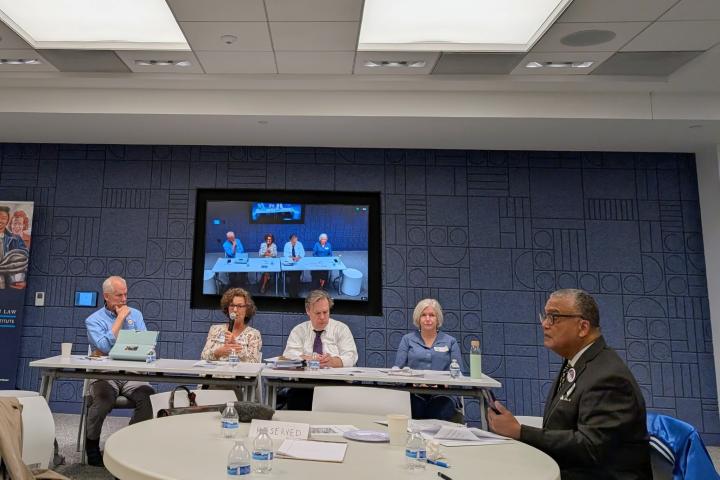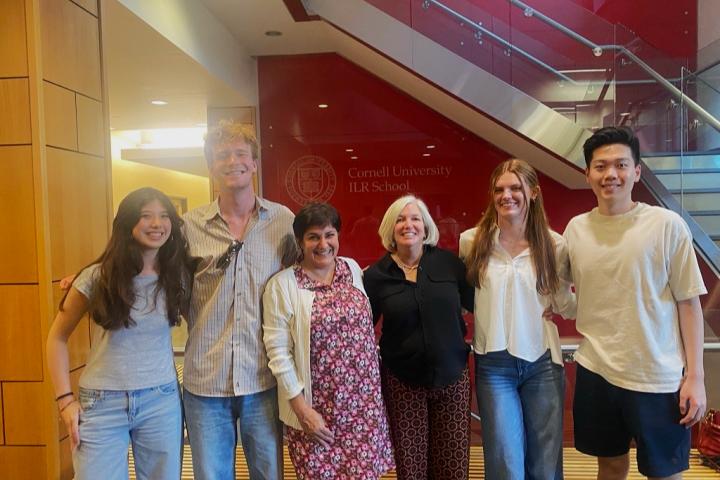ILR, UMass Boston Share Report on General Electric
General Electric production and profits are shaped by federal contracts, subsidies and national policies, but do not incentivize domestic manufacturing, according to a new report by the ILR School and the University of Massachusetts Boston.
Focused on GE plants in Schenectady, New York, and Lynn, Massachusetts, the report was led by Nick Juravich, associate director of the UMass Boston Labor Resource Center, and Art Wheaton, ILR’s director of Western New York Labor and Environmental Programs, based at the school’s Buffalo Co-Lab.
“Building a Sustainable Future for General Electric in Schenectady, New York & Lynn, Massachusetts” findings include:
- GE’s approach in Schenectady and Lynn is hollowing out these plants and cities, which GE is doing in facilities and communities around the nation. GE has outsourced, offset and transferred products around the world and cut production personnel by 90 percent in Schenectady and Lynn since the 1980s.
- GE’s manufacturing strategy is not simply driven by costs. Rather, GE responds to international and domestic political pressure in locating new plants and jobs. Much of GE’s manufacturing profits come from service and maintenance contracts, not initial sales of turbines and jet engines. GE moves work domestically and globally to generate the political capital it needs to secure such contracts.
- Building a sustainable future for GE in Schenectady and Lynn demands political action to ensure government contracts and subsidies generate domestic manufacturing jobs. New legislation, regulation and executive action are needed to re-shore supply lines and generate domestic investment in manufacturing.
The researchers investigated GE’s manufacturing strategies and plant closures across the U.S.; government subsidies and contracts GE receives, and how GE executives and board members have extracted value from the company instead of reinvesting in production and innovation. They conclude their analysis by focusing on GE’s role in the inherent risks that globalized supply chains pose to U.S. national security and defense industrial base, and the need to grow the domestic renewable energy sector to combat climate change.
Cornell Researchers collaborated on the project to assess feasibility of building renewable energy products in Lynn and Schenectady. Art Wheaton and Russell Weaver, quantitative geographer and Director of Research at the Cornell ILR Buffalo Co-Lab, provided data and analysis on the geographic and logistical advantages of building wind turbine components in the two sites. The footprint of these two large campuses located near multimodal transportation options and high performance workforce make them great locations to invest. Unfortunately, GE refused to cooperate with the study.
Responding to news this month that GE plans to divide itself into three companies, Juravich said, “Whether managed by one company or three, GE's core industrial businesses rely on government contracts and subsidies and are inextricably intertwined with U.S. industrial policy. We hope that GE's plan to ‘realize the full potential of each of our businesses’ will include re-investing in U.S. workers and communities going forward, and we hope our elected representatives will enact policies that ensure GE does so."
An executive study of the report is available here.



